‘The establishment and expansion of settlements in the West Bank, including East Jerusalem, have no legal validity and constitute a flagrant violation of international law.’
Recently widowed, Nfouz and her seven children live in a small neighbourhood of Al Khader town in Bethlehem, where her late-husband’s family used to tend land near their home. The agricultural land was confiscated long ago to make way for the Israeli settlement of Efrat, which is home to 12,000 settlers.
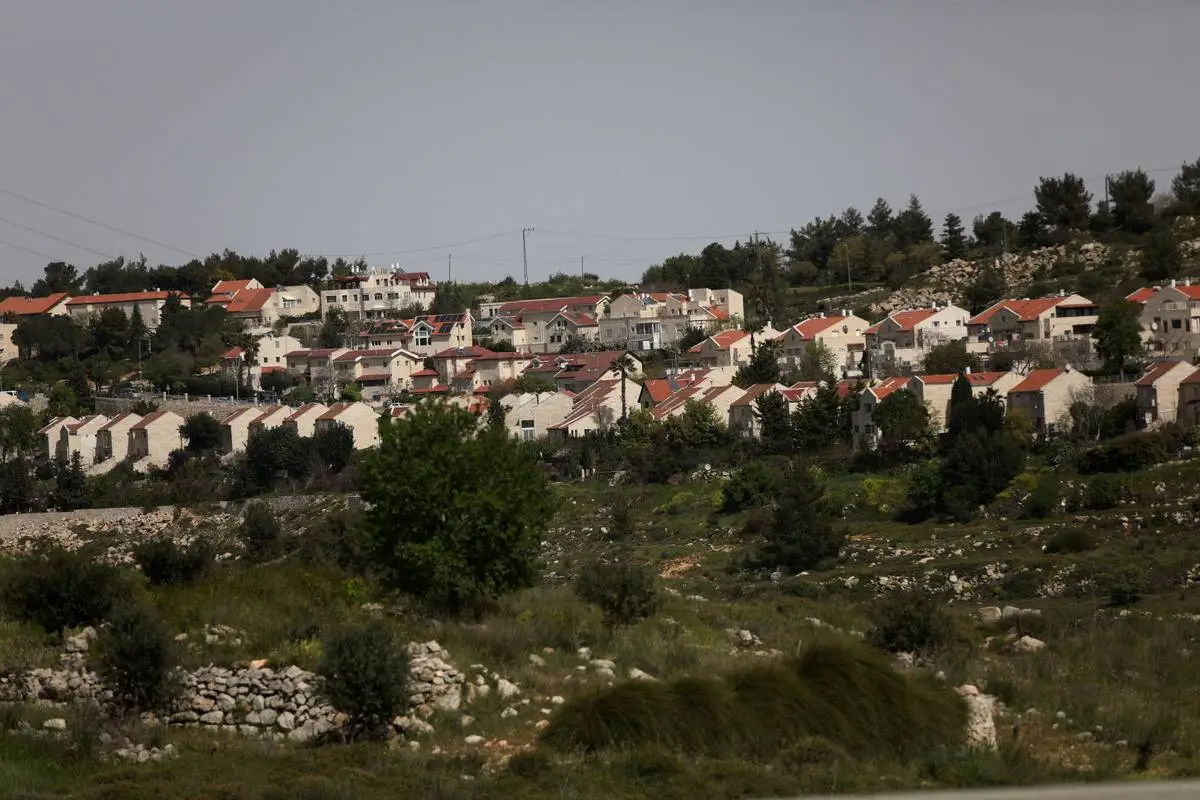
The large Israeli settlement of Efrat
Six years ago, Nfouz and her late husband started work on an extension, to provide more space for their growing family. They were forced to stop building in April 2023, when Israeli authorities issued them with written intent to demolish their home.
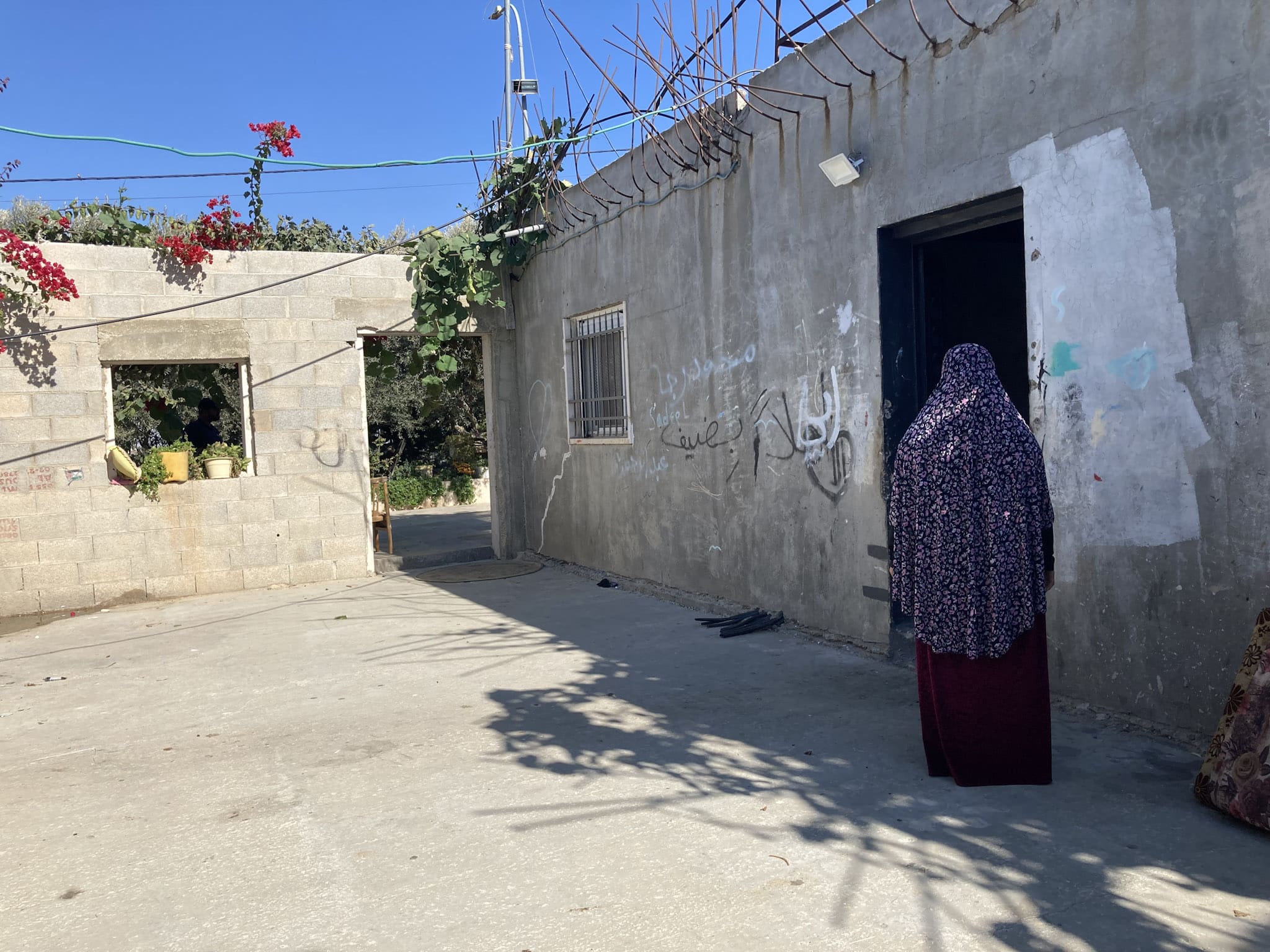
Nfouz outside her home
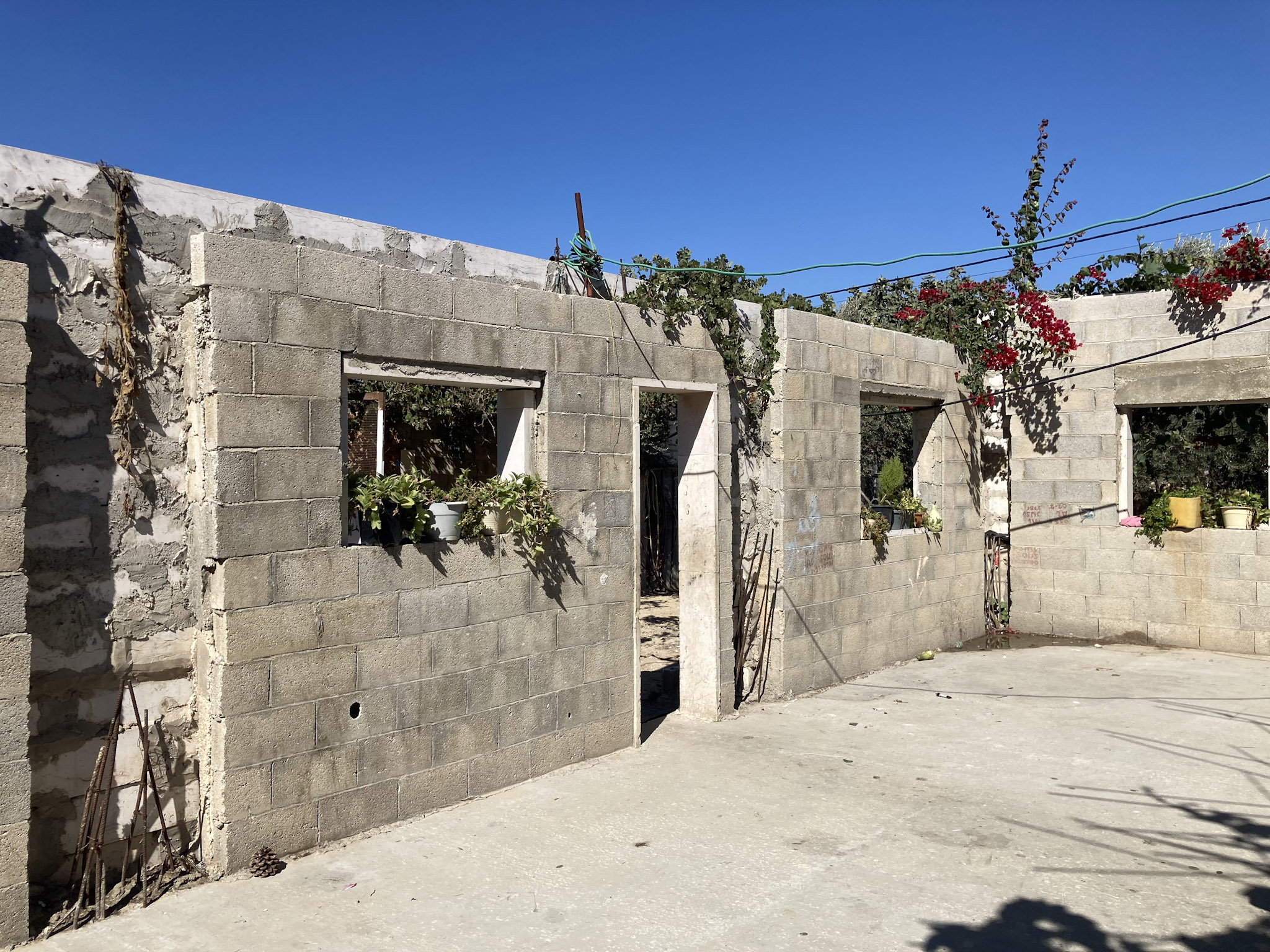
The unfinished extension
Nfouz and her children are one of just 15 Palestinian families now remaining in the neighbourhood. Israeli authorities began demolishing homes seven years ago, as part of a plan to level the neighbourhood to construct a bypass road, which connects Efrat with 12 other settlements a few miles away.
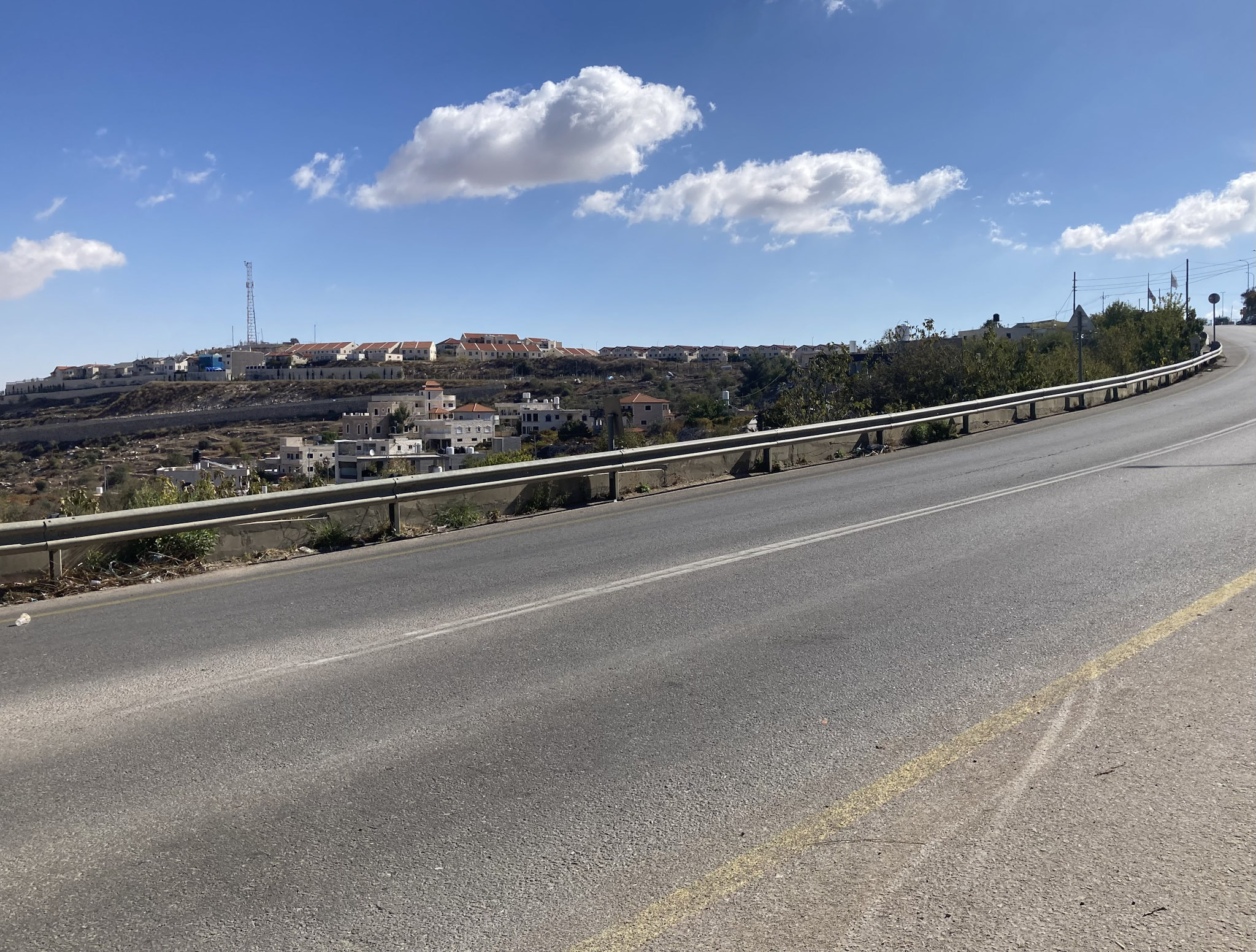
This image of Efrat and the bypass road was taken from Nfouz’s property and shows just how close the road has been built to her home
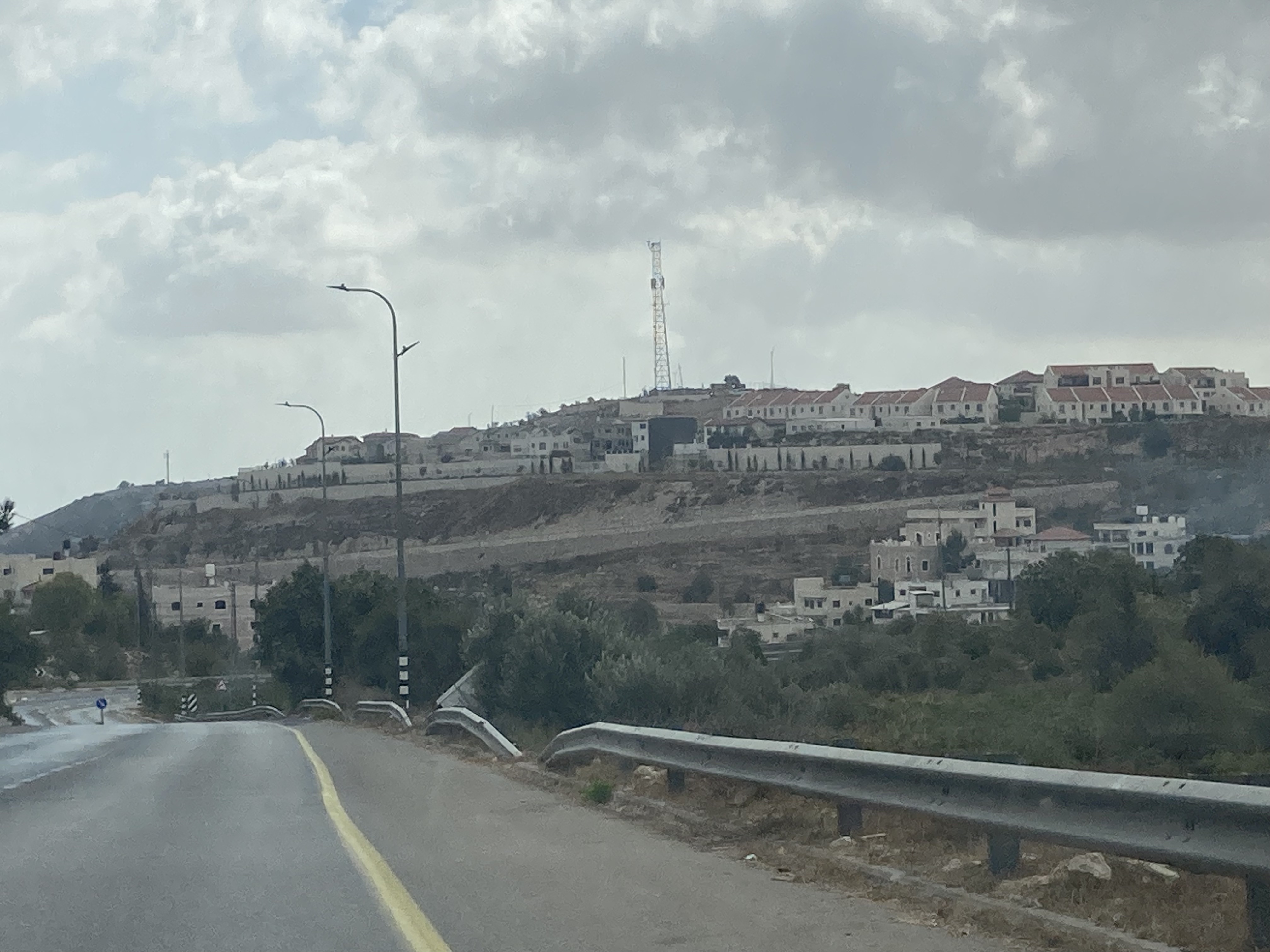
Where the bypass road connects to Efrat settlement
Nfouz fears that, now, there may be plans in place to widen the road. She was visited recently by four Israeli contractors who instructed her to remove all the trees that run along the boundary of her property, bordering the road. They told her that if she fails to comply, they will cut down the trees and Nfouz will have to cover the costs.
‘It’s very hard for me to be both mother and father for my children, having to be strong for them. Sometimes, when I need to cry, I go outside and close the door, so my children don’t see.’
Israeli settlements have always been considered illegal under international law, yet their establishment and expansion have continued unabated. One indicator has been the increase over the years of Israeli settlers living in the West Bank, including East Jerusalem. In 1993, the number of settlers totalled around 247,000. By the end of 2001, this figure had risen to 375,000, and by March 2023 it had almost doubled, to more than 700,000.
The first Israeli settlements were established soon after the Six-Day War in 1967, when Israel occupied the West Bank, Gaza and the Golan Heights. Vast resources have been invested by successive Israeli governments since then to build more settlements, along with their road networks and other infrastructure.
Today, there are 147 established settlements across the West Bank, 20 of which are situated in Bethlehem. To make way for these settlements, Israel has appropriated vast swaths of Palestinian land, designating large areas as closed military zones, nature reserves or Israeli state land, where in all cases, Palestinian access is prohibited. Palestinian human rights organisation, BADIL reports that, in this way, Israel has effectively annexed more than 70 percent of the West Bank for the exclusive benefit of Jewish-Israeli citizens.
‘While facilitating Jewish settlements, the [Israeli] planning system works vigorously to restrict the development of Palestinian communities.’
In contrast to the daily reality for Palestinians, who continue to be squeezed into ever-smaller areas, many without sufficient land to survive economically, the Israeli government offers a range of financial incentives, and other benefits, to its own citizens to move into settlements in the West Bank, in violation of international law.
Land confiscation and settlement expansion intensified after the current Israeli government was elected in November 2022. This year, things have accelerated further, with Israel approving the largest seizure of land in the West Bank since the Oslo Accords were signed more than 30 years ago.
There has also been an increase in settlement planning approvals. In July, approval was granted for thousands of new housing units in existing settlements, while a further 7,000 units have been approved for new settlements.
Israeli Finance Minister Bezalel Smotrich, himself a settler, has presented a two-year plan that, if implemented, would see more than 500,000 new settlers move to the occupied West Bank.
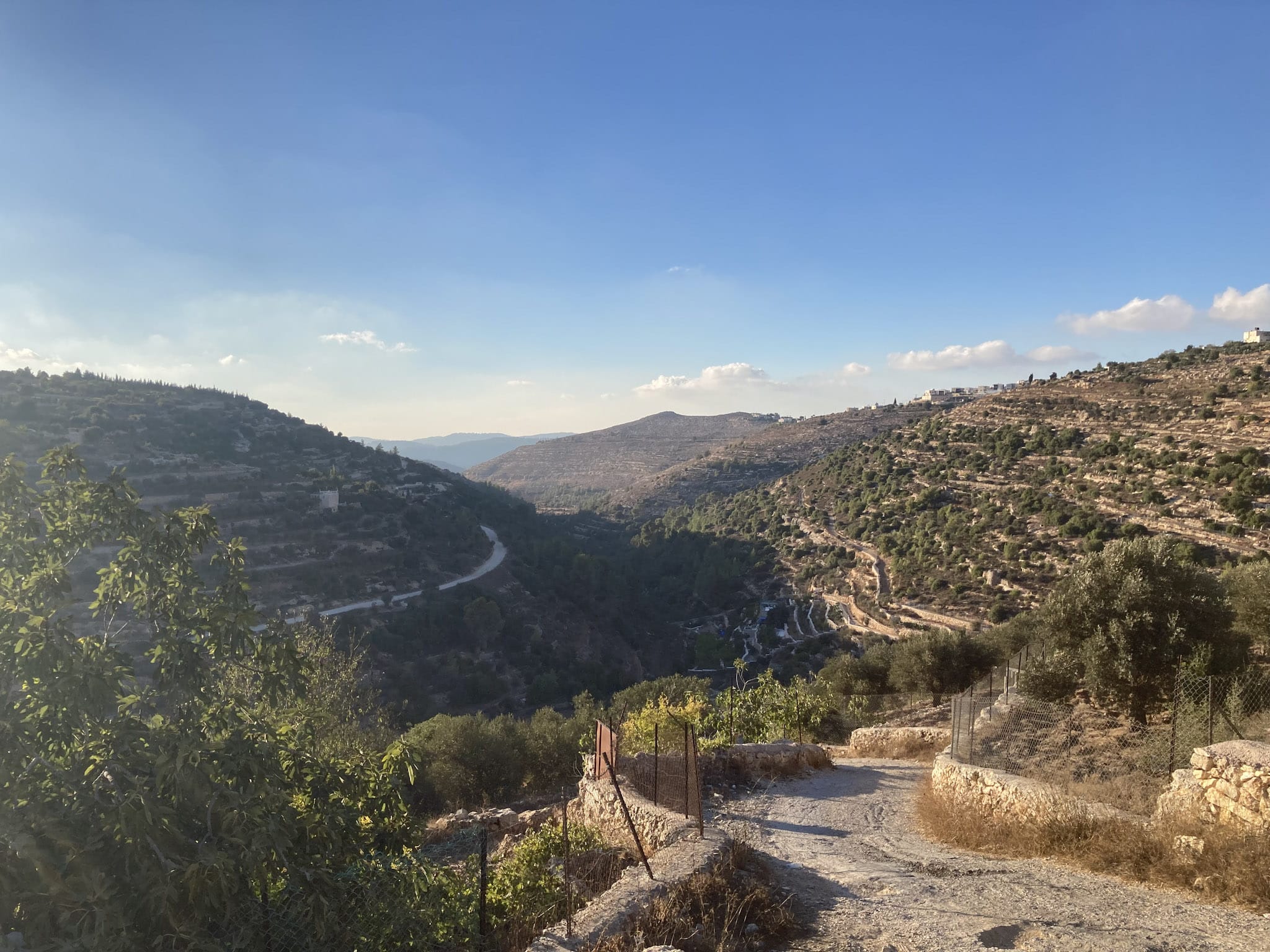
Al-Makhrour valley
Bethlehem is a key target of these wider settlement plans. The valley of Al Makhrour, which lies west of the city of Bethlehem, is known for its fertile agricultural land that produces figs, apricots, grapes and olives. It is also one of the few remaining recreational spaces still left for Palestinians in Bethlehem, with its natural hiking trails, freshwater springs, mountains and caves.
Just across the valley lies Battir, which is a living, working village, home to ancient stone terraces and natural springs. Many Palestinians’ livelihoods depend on these terraces, where grapevines and olive trees are planted, receiving water from a natural irrigation system dating back to the Roman period. In 2014, Battir was awarded UNESCO World Heritage status due to its cultural and historical significance.
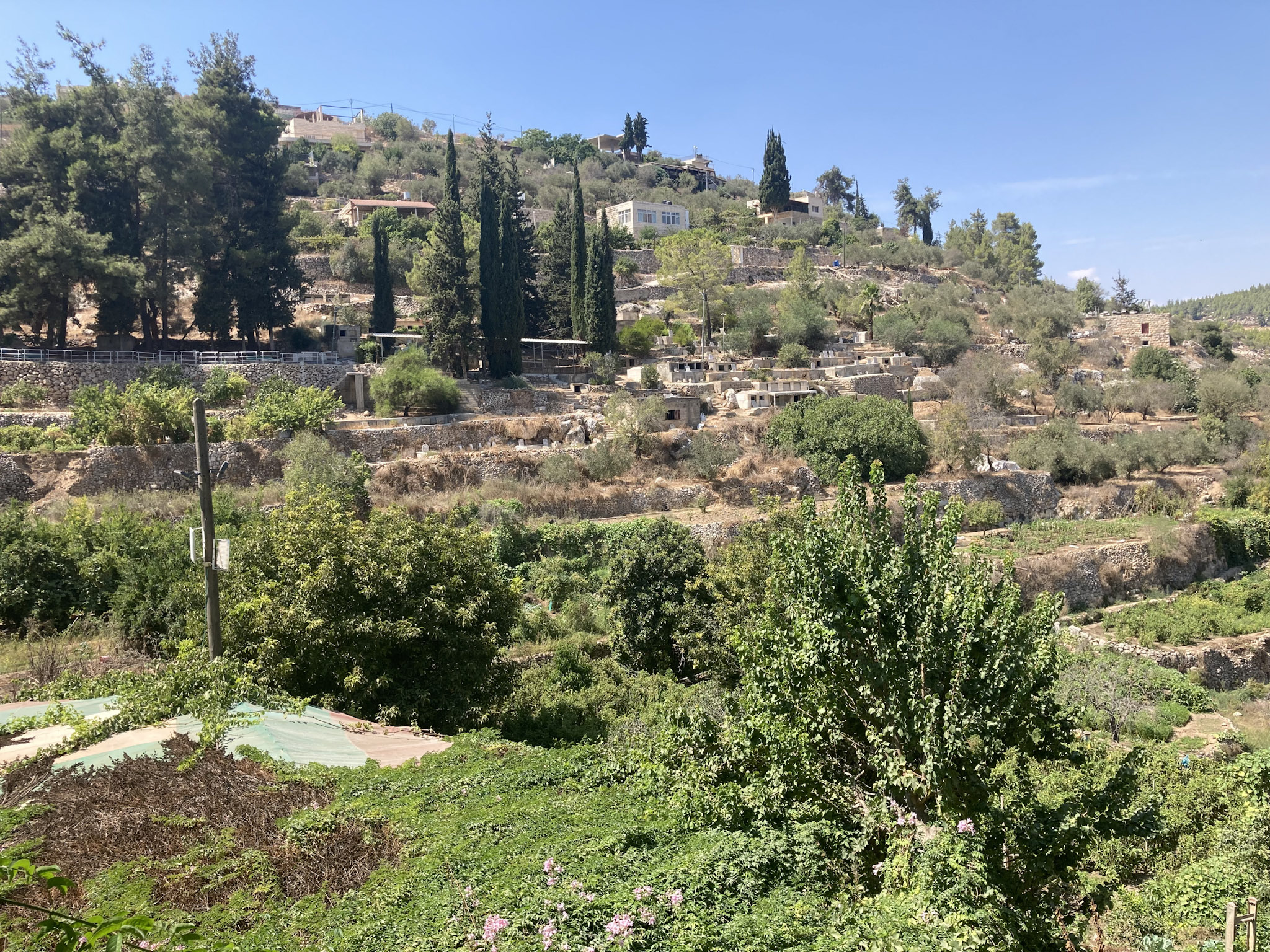
The lush ancient terraces of Battir
In August 2024, Israeli authorities declared 154 acres in Al Makhrour and Battir as State land, with the specific aim of establishing a new settlement, Nahal Heletz. Preliminary approval was granted in June. A second new settlement in Bethlehem has also been given the green light, despite a 14-year struggle by Palestinian farmers to prevent its establishment. If it goes ahead, the so-called E2 project would effectively cut five villages off from Bethlehem city and prevent any further urban development of Bethlehem, which is already flanked on three sides by Israel’s Separation Barrier.
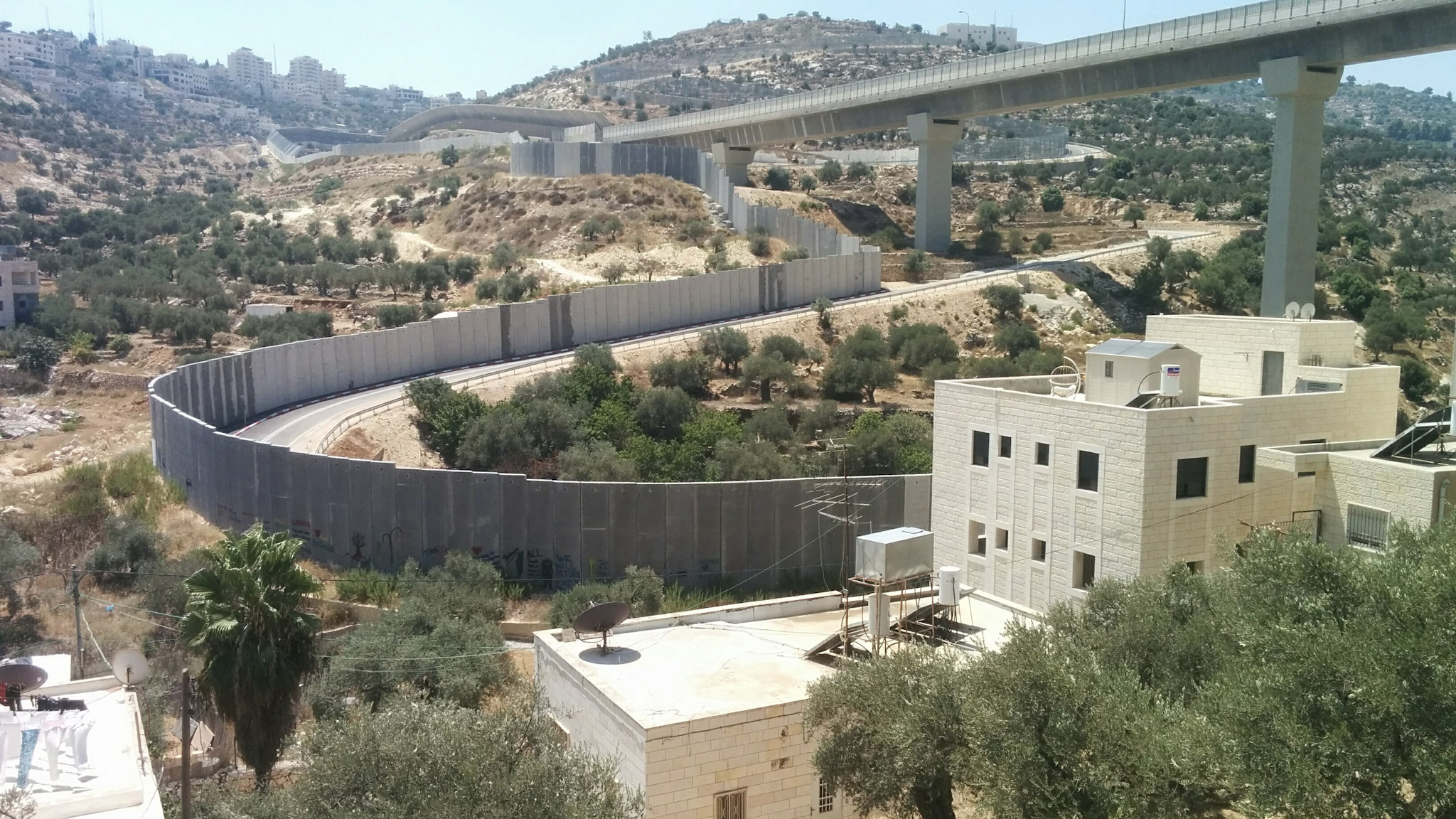
The Separation Barrier in Bethlehem
Many Palestinians are taking a stand, to try and prevent these plans from going ahead.
The Kisiya family owns several acres of land in Al Makhrour, land that has been in their family for generations. Their home once stood there, together with a thriving restaurant. Several years ago, Israeli authorities designated the land as a closed military zone and prohibited the family from accessing it. In line with this designation, Israeli authorities demolished the Kisiya’s home and restaurant, despite legal documentation proving the family’s ownership of the land.
In response, the Kisiyas put up a tent and lived in it, on the spot where their home once stood. Israeli soldiers arrived shortly afterwards and dismantled it, ordering the family off their land. The family put the tent up again and, once again, it was dismantled. After 18 times of having their tent taken down, the family didn’t erect it again.
Nevertheless, the Kisiya family remain steadfast in their opposition to Israel’s attempt to confiscate their land.
‘We have been fighting for over twenty years. We are exhausted…but we will not surrender. Our goal is to reclaim what is rightfully ours.’
The acceleration of proposed settlement expansion and building during the past year, while the world’s attention has been focused on the violence in Gaza and Lebanon, appear aimed at destroying any hope of Palestinian self-determination.
Finance Minister Smotrich has referred to his ‘life’s mission’ being the continued expansion of settlements in order to prevent an independent Palestine, while in July, members of the Knesset – Israel’s parliament – overwhelmingly passed a resolution rejecting Palestinian statehood.
Where all of this leaves Nfouz and her children is unclear. Her two sons supplement the family’s income by washing cars after school and on non-school days. Shortly after her husband died, Nfouz filed an application to the Israeli courts to have her home transferred into her name, in the hope of safeguarding it. However, her lawyer has confirmed that the application was unsuccessful, leaving Nfouz and her children in a precarious position; not knowing from one day to the next when – or if – Israeli authorities will come to demolish their home.
When asked what she would do if the worst was to happen, Nfouz replied:
‘I will make a tent, and I will live with my children inside it, here on this very spot where our house now stands. We have nowhere else to go.’
In July, just one day after the Knesset vote, the International Court of Justice (ICJ) issued its most unequivocal ruling on the illegality of Israeli settlements, urging Israel to cease ‘its unlawful presence in the occupied Palestinian territory as soon as possible and stop all settlement activity there immediately’.
Take action!
-
Follow, support and share the Kisiya family’s Save Al Makhour campaign. Part of a church? Tell them about this Christian-led campaign and ask them to speak publicly in solidarity.
-
Sign and share our urgent action on the ICJ’s Palestine ruling! In the UK? Sign here. In Ireland? Sign here.
-
Write to the UNESCO World Heritage Centre to express your concerns about how the building of Israeli settlements threatens the cultural lives and livelihoods of Palestinians and the rich biodiversity of the landscape in Battir.
What does international law say?

